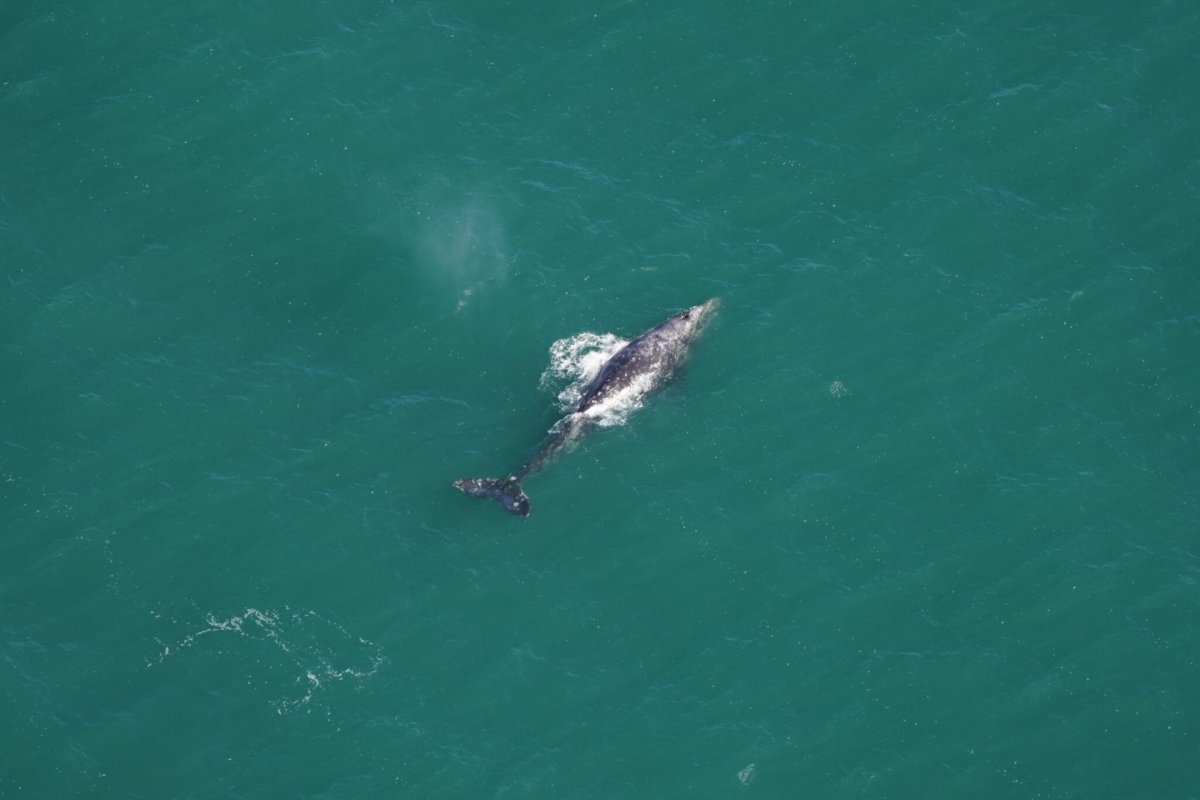A gray whale believed to be extinct from the Atlantic Ocean for 200 years was suddenly seen swimming near Nantucket last week, a sight that stunned and elated the marine experts who witnessed it.
Although the species thrives off the Pacific Coast, gray whales have been extinct from the Atlantic Ocean since the 1700s. A gray whale was spotted off the coast of Florida in December, and experts believe that one is the same whale seen last week, according to a press release from the New England Aquarium.
New England Aquarium's aerial survey team saw the whale on Friday March 1 and photographed it as it repeatedly dove and surfaced.

"My brain was trying to process what I was seeing, because this animal was something that should not really exist in these waters," research technician Kate Laemmle said in the press release. "We were laughing because of how wild and exciting this was, to see an animal that disappeared from the Atlantic hundreds of years ago."
Newsweek reached out to the New England Aquarium by email for comment.
Climate change could be the reason why the whales show signs of returning to the Atlantic Ocean. The whale possibly traveled through the Northwest Passage, a route that connects the two oceans through the Arctic Ocean. Global warming has caused the Northwest Passage to remain ice free during the summer months, allowing the gray whales a free path into the Atlantic.
"This sighting highlights how important each survey is. While we expect to see humpback, right and fin whales, the ocean is a dynamic ecosystem, and you never know what you'll find," Orla O'Brien, associate research scientist in the Anderson Cabot Center for Ocean Life at the New England Aquarium, said in the press release. "These sightings of gray whales in the Atlantic serve as a reminder of how quickly marine species respond to climate change, given the chance."
Warming ocean waters have climate experts concerned for a number of factors, including its influence on strengthening tropical storms, its devastation to coral reefs, and the impact of melting sea ice.
Climate change has caused a significant impact on other species of whales as well. Newsweek previously reported that North Atlantic right whales, a critically endangered species, are getting smaller and smaller as the warming climate makes their food scarcer.
The whales' shrinking length makes it more difficult for calves to be born because of the impact on the mothers. According to a new paper in the journal Royal Society Open Science, a 46-foot female had a 56 percent chance of successfully giving birth, compared to only a 14 percent chance for a female 10 feet smaller at 36 feet.
Update 03/05/2024, 11:37 a.m. ET: This article was updated with additional information.
Uncommon Knowledge
Newsweek is committed to challenging conventional wisdom and finding connections in the search for common ground.
Newsweek is committed to challenging conventional wisdom and finding connections in the search for common ground.
About the writer
Anna Skinner is a Newsweek senior reporter based in Indianapolis. Her focus is reporting on the climate, environment and weather ... Read more
To read how Newsweek uses AI as a newsroom tool, Click here.






